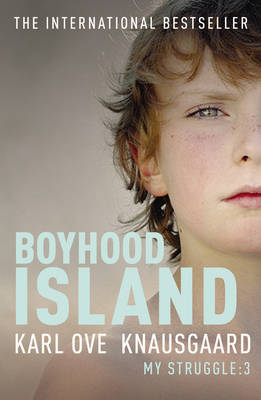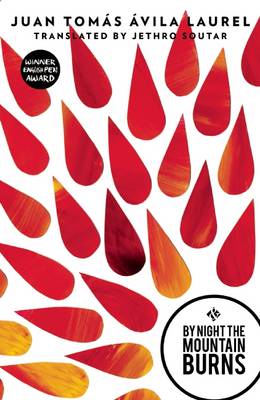 Karl Ove Knausgaard, Boyhood Island: My Struggle Book 3 (2010)
Karl Ove Knausgaard, Boyhood Island: My Struggle Book 3 (2010)
Translated from the Norwegian by Don Bartlett (2014)
I expect that Knausgaard will remain a fixture of the IFFP longlist until the whole of My Struggle receives UK publication; here he is for the third year running, anyway. By now, the style and approach are known quantities – intensely detailed chronicles of everyday life, told in the rough-and-ready tones of Don Bartlett’s translation – but the substance varies. The stereotype of My Struggle is that it’s just a catalogue of minutiae; but what made the first volume especially so vital for me was the sense of Knausgaard grappling with the deeper realities of life – love, death, memory – and the dizzying moments when these would break through all the chatter.. In Boyhood Island, though, I we’re largely left with only the chatter.
It’s sharp, disarmingly frank chatter: Knausgaard is focusing on his childhood, and evokes the sense of this as a time of exploring, discovering boundaries and testing them (for good or ill). There’s a running theme of the restrictions of inside spaces (home, school) versus the freedom of outside – to the point where the teenage Karl Ove talks in terms of treating his bedroom as the ultimate ‘outside’ space.
There are times when Knausgaard confronts the some of the realities which animate My Struggle: how can he really remember all this? what does he actually know about that time? But I cannot shake the impression that, in Boyhood Island, I got the form of My Struggle without the full effect, and that feels like having only half a book. That’s why I’m not keen to see this volume progress any further in the IFFP.
Juan Tomás Ávila Laurel, By Night the Mountain Burns (2008)
Translated from the Spanish by Jethro Soutar (2014)
Relatively little African literature in translation makes it to UK publication, and By Night the Mountain Burns would be notable simply for being only the second work from Equatorial Guinea to be made commercially available in English. More than that, though, it’s also very good.
At the beginning, we don’t know why, or to whom, the narrator of Ávila Laurel’s novel is telling his story, but we do know that he’s telling it orally. He begins with the song that would be sung when the people of his island pulled canoes to the shore, then runs through various events and situations from his childhood: the grandfather who would never visit the sea; a fire that destroys the mountainside plantations; visitors who come to trade, or for more mysterious reasons. The style is dense, rhythmic and discursive; I was interested to read this article by Jethro Soutar on the choices he had to make while translating, which shows just what a precision job it was.
By Night the Mountain Burns highlights a number of opposites (I hesitate to say ‘contradictions’): the spoken and written texts; the island’s vernacular and Spanish, the language of authority; the mixture of Catholic and traditional beliefs. The tensions created by these opposites create an undercurrent that ripples through Ávila Laurel’s novel; but all is held together by the flexibility of the narrative voice. Though the narrator’s digressions might seem to risk making the novel too diffuse, in the end I found that a cohesion of tone wins out. There’s a wonderful sense that the style and voice are not passively reflecting place and circumstances, but are actively creating them. I was reminded of Zone in that way – and, like Zone, it helps just to jump right in.
I enjoyed By Night the Mountain Burns, and I’d be happy to see it on the IFFP shortlist. On a final note, this is the first time that And Other Stories have received a nod from the IFFP; they’re a great publisher, and I’m pleased to see them get this recognition at last.
Read my other posts on the 2015 Independent Foreign Fiction Prize here.

Recent Comments